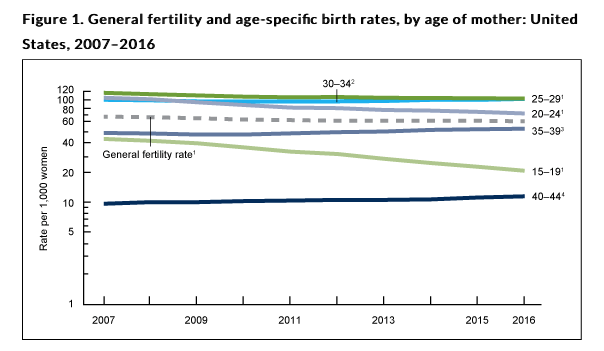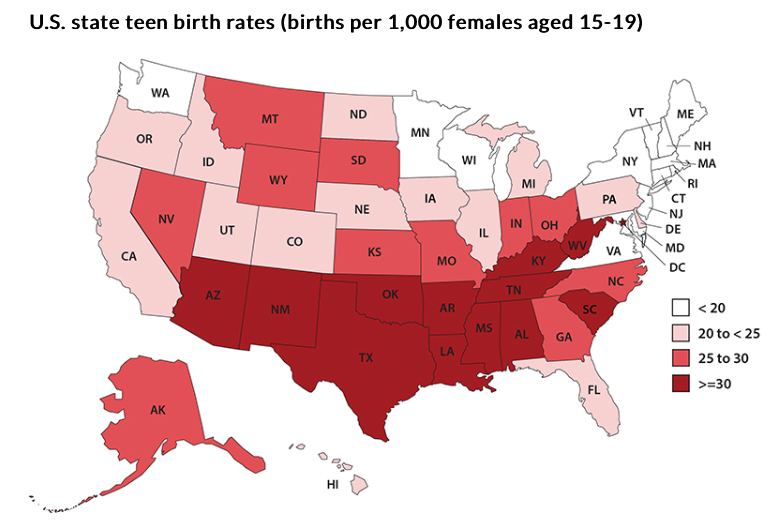It's practically universal for parents to look at their kids – and teen culture in general – and take issue with at least some of the questionable choices they make. While that's true, take heart, because there's at least one area where criticism isn't warranted, and collectively, our kids are doing exceptionally well:
Avoiding parenthood before the age of 19.
Births rates in the United States for mothers aged 10 to 14, as well as those 15 to 19, dropped to an all-time low, according to new data released by the National Vital Statistics System at the Centers for Disease Control.
For pre-teen moms up to age 14, the birth rate in 2016 stood at 0.2 in 1,000 girls, which translated into 2,200 infants being born in the U.S. That total was down drastically from 8,500 births in this age group in 2000, a decline of 67 percent in 16 years.
 As for the 15-to-19-year-old sector, between 2015 and 2016 there was an overall 9 percent drop in live arrivals to 20.3 births per 1,000 girls/women. That contributed to a 57 percent reduction since 2000 – and more pronounced, a remarkably steep 51 percent plunge since 2007. In terms of state geography, the highest birth rates were found across nearly the entire southern portion of the country (adjacent chart and map, credit: CDC).
As for the 15-to-19-year-old sector, between 2015 and 2016 there was an overall 9 percent drop in live arrivals to 20.3 births per 1,000 girls/women. That contributed to a 57 percent reduction since 2000 – and more pronounced, a remarkably steep 51 percent plunge since 2007. In terms of state geography, the highest birth rates were found across nearly the entire southern portion of the country (adjacent chart and map, credit: CDC).
 This encouraging news in declining birth rates is a result of kids continuing to track the current trend over the last decade of having less intercourse, as well as increasing their use of condoms and other forms of contraception.
This encouraging news in declining birth rates is a result of kids continuing to track the current trend over the last decade of having less intercourse, as well as increasing their use of condoms and other forms of contraception.
And by consulting information that's readily available to them online, which spells out the health, social and financial consequences of unintended pregnancies, kids and teenagers are choosing to delay their initiation to intercourse. (That's not to say sexual activity among teens isn't taking place; it's just taking different forms that don't present an opportunity to reproduce.)
This pullback in sexual encounters at a young age is also part of a larger movement among teens. In macro terms, they've also reduced other "risky" behaviors like smoking cigarettes, drinking alcohol and using marijuana. Delaying intercourse and having safe sex is part of that overall risk-adverse thinking.
"Early initiation of sexual activity is associated with having more sexual partners, not using condoms, sexually transmitted infection and pregnancy during adolescence," states a finding from a CDC study on teenage sexual behavior, released in January. The report also noted the trend of declining sexual activity among 9th- and 10th-graders, which was termed "especially encouraging."
On a related but separate note, on the day the CDC released its birth rate statistics a U.S. District Court judge in the District of Columbia handed down a decision saying that the Trump administration's "decision to end grants two years early for organizations participating in the Teen Pregnancy Prevention Program was 'arbitrary' and 'capricious,'" and could not go forward, as reported by The Hill. Judge Catherine Blake's decision "marks the third time a federal judge has ruled against the Trump administration for cutting the grants."




